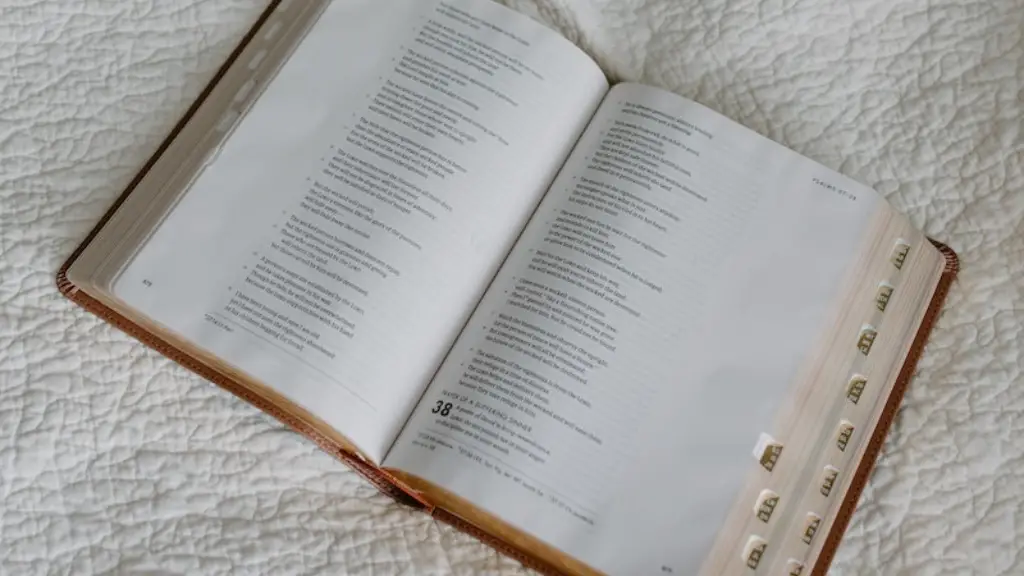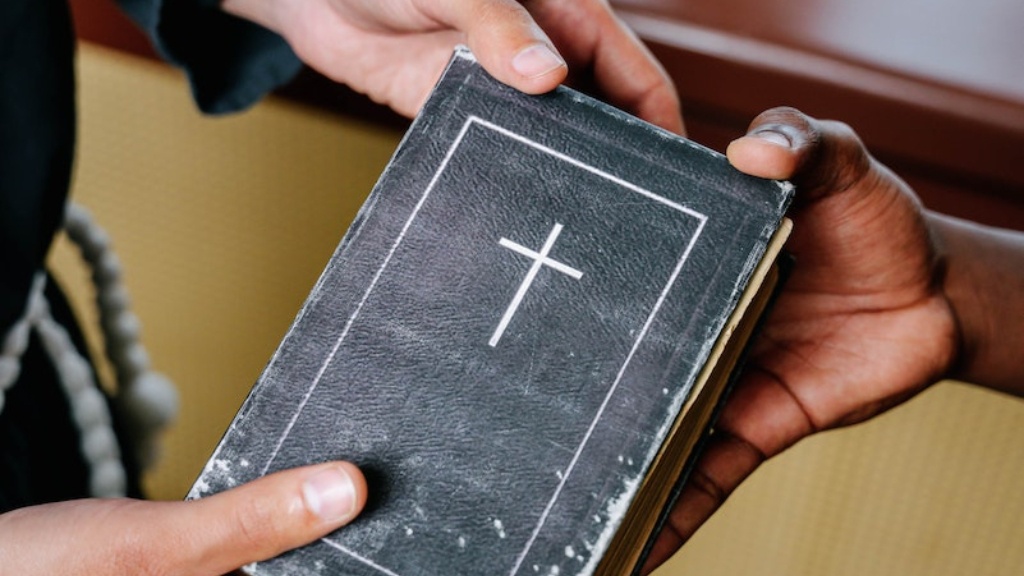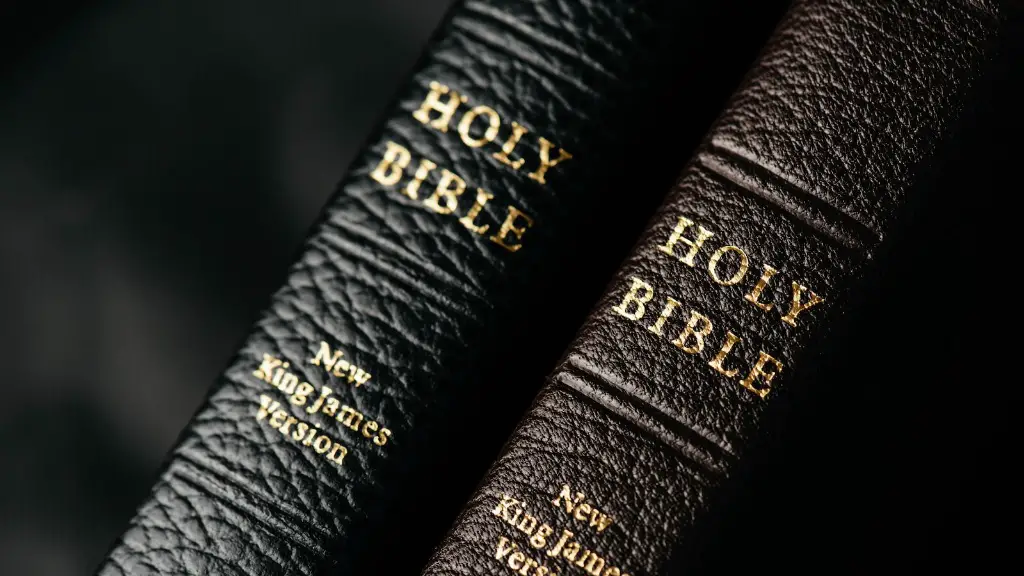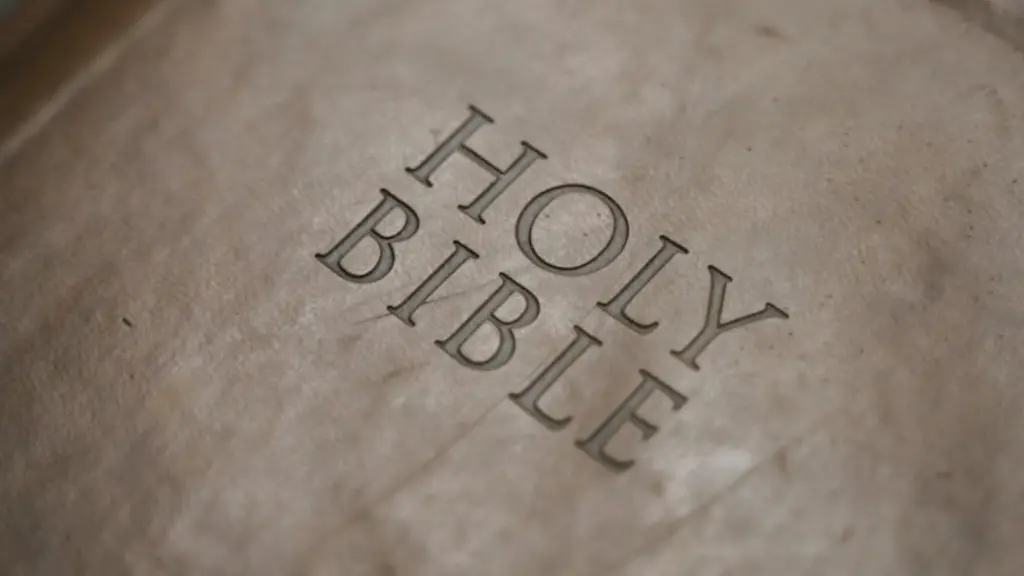There is no simple answer to the question of whether or not one should read the Bible in order. While there are many benefits to reading the Bible chronologically, such as gaining a greater understanding of the historical context of the scripture, there are also arguments to be made for reading the Bible topically or thematically. Ultimately, the decision of whether or not to read the Bible in order depends on the reader’s goals and preferences.
There is no one correct answer to this question. Some people prefer to read the Bible chronologically, while others prefer to read it according to the order of the books. There is no wrong way to read the Bible, as long as you are doing so with the intention of understanding God’s Word.
What is the correct way to read the Bible?
The Bible is a collection of religious texts that are revered by Christians. The books within the Bible were arranged according to the type of book it is. However, this does not mean that Christians have to read the Bible in that order. There is no right or wrong order or way to read the Bible. It is a personal choice.
The Bible is a book full of history and accounts of God’s dealings with His people. You can start your study of the Bible by following a simple historical narrative. By reading the book of Genesis, you can learn about the beginning of the world and God’s creation of mankind. Exodus, Leviticus, Numbers, and Deuteronomy tell the story of the Israelites’ deliverance from slavery in Egypt and their journey to the Promised Land. The book of Joshua tells of the Israelites’ conquest of the land of Canaan. Judges, Ruth, 1 and 2 Samuel, 1 and 2 Kings, 1 and 2 Chronicles, Ezra, Nehemiah, and Esther recount the history of the nation of Israel from the time of the judges to the return from exile. The book of Jonah is a story of God’s mercy and forgiveness. The book of Acts tells of the early Church and the spreading of the gospel to the Gentiles. As you read through the Bible, you will see how God has been faithful to His people throughout the ages.
Is it okay to read the Bible in chronological order
While it might be tempting to focus on the more well-known stories in the Bible, it is actually more helpful to read through the Bible in the order that the events actually happened. This allows for a greater understanding of how all the stories in the Bible fit together and how they connect to each other.
1. Pray for a hunger for God’s Word.
2. Set a definite time to read the Bible.
3. Read consecutively, turning your heart to the Lord.
4. Pray over what you read.
5. Keep track of your Bible reading.
6. Guard against distractions.
What are the 4 ways to read the Bible?
Literal hermeneutics is the interpretation of Scripture that takes the text at face value, without looking for hidden meanings. This approach is often used when interpreting historical narratives or didactic passages.
Moral hermeneutics is the interpretation of Scripture that looks for the moral lesson to be learned from the text. This approach is often used when interpreting parables or wisdom literature.
Allegorical hermeneutics is the interpretation of Scripture that looks for hidden, symbolic meanings in the text. This approach is often used when interpreting apocalyptic literature or certain types of poetry.
Anagogical hermeneutics is the interpretation of Scripture that looks for the eschatological (end times) implications of the text. This approach is often used when interpreting prophetic passages.
Here are five tips for reading the Bible as a new Christian:
1. Start with one verse wonders. Romans 3:23 is often quoted when the decision is being made to come to Christ.
2. Begin a project of reading a gospel and let it start with Luke.
3. Confess along with Peter.
4. Reflect on What’s Real.
5. Stand on the shoulders of giants.
What are the five ways to read the Bible?
The Bible is a special book that has helped many people through tough times. It can be read in different ways depenHearing The Bible Reading The Bible Studying The Bible Memorizing The Bible Meditating On The Bible.ding on what you need from it. You can read it for guidance, to learn about God, or for entertainment. It is also a book that can be memorized and studied.
The Bible is a great source of encouragement and hope. It helps us to know that we are not alone in this world and that God is always with us. It also teaches us about God’s love for us and how we can live our lives in a way that pleases him. Additionally, reading the Bible on a regular basis can help us to grow in our faith and to better understand God’s will for our lives.
How many times a week should I read the Bible
I find this article quite disturbing. While I cannot speak to the findings themselves, I find it sad that there would be a “full-blown effort to keep the followers of Christ from consistently reading the Bible on a daily basis.” This says nothing about the findings themselves, but if there is indeed an effort underway to prevent Christians from reading the Bible, I find it very concerning.
Before you open your bible, begin with a simple prayer asking God to take the wheel and direct your time in His word to reap the greatest blessing and for His glory. When you pray simply quiet your mind as much as you can and begin to notice the whispers and small voices you sense. These are the leading of the Holy Spirit telling you what you need to read and study. Go with those leading and trust that God will reveal what you need to know for that day.
What is the easiest form of the Bible to read?
The Holy Bible: Easy-to-Read Version (ERV) is a translation of the Bible compiled by the World Bible Translation Center. It was originally published as the English Version for the Deaf (EVD) by BakerBooks. The ERV is a clear, easy-to-read translation that is perfect for those who are just learning to read English, or for those who want to read the Bible in a simple, straightforward way.
There are a number of ways to memorize the books of the Bible:
1. Read as much as you can and also memorize facts about each book.
2. Write summaries of each book and your thoughts about them.
3. Discuss often with others.
4. Listen to lectures about each book in order.
What part of the Bible should I read to get closer to God
Psalms is the right book for you if you are looking for encouragement, light in times of darkness, promises of God’s protection, or assurance of God’s presence. Genesis, the first book of the Bible, is one of the most famous. It describes how God created heaven, earth, and man.
There is great power in reading the Bible with other people. It is one of the quickest ways to get out of a reading rut. When you are with other people who are also reading the Bible, you are able to discuss what you are reading and gain new insights. Additionally, you can pray for each other and lift each other up. Reading the Bible in community is a great way to stay connected to God and His Word.
Is it good to read the Bible front to back?
With the Bible being a collection of texts, you could technically start anywhere. It might sound obvious, but one option is to start at the beginning, in Genesis, and read it from front to back. One benefit of this is seeing the full arc of the Bible story unfold in front of you.
It is clear that regular Bible reading is something that is important to many Americans. For some, it is a daily practice, while for others it is something that they do a few times a week. There are also those who only read it once a week or a few times a month. No matter how often you read the Bible, it is a good practice to do regularly.
Warp Up
The Bible does not need to be read in order. Any particular order will not affect your understanding of scripture.
The Bible is a collection of books that tell the story of God’s relationship with humanity. It is divided into two main sections, the Old Testament and the New Testament. The Old Testament tells the story of God’s dealings with the people of Israel, while the New Testament tells the story of Jesus Christ and his followers. There is no set order in which the books of the Bible should be read, but many people find it helpful to start with the book of Genesis in the Old Testament and then read through the New Testament.





